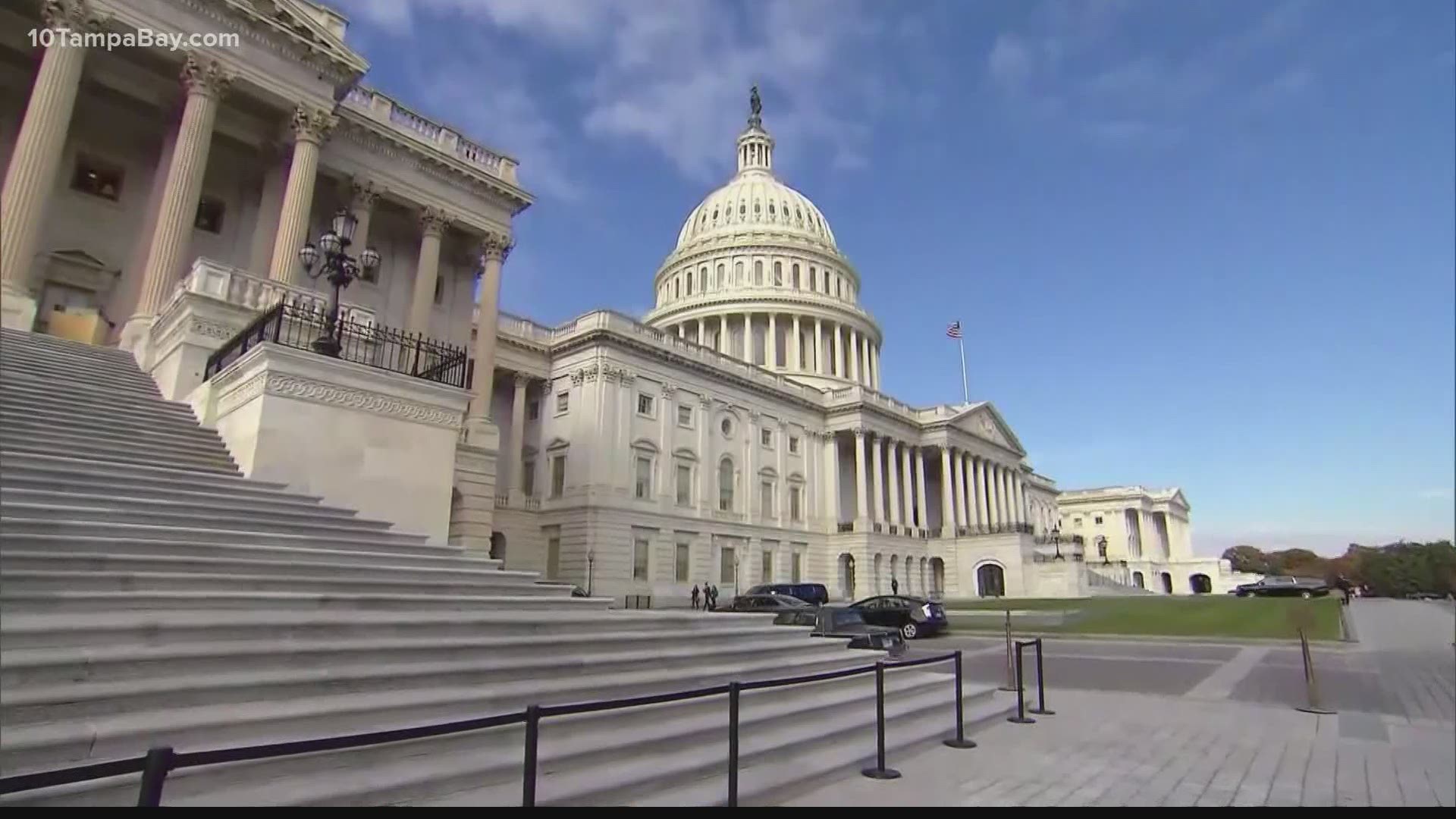ST. PETERSBURG, Fla. — With the first batch of $1,400 stimulus payments hitting Americans' bank accounts this weekend, some might soon learn their check is heading to a debt collector instead.
The $1.9 trillion COVID-19 relief bill, called the American Rescue Plan, was passed through a process known as budget reconciliation -- not like a typical bill, making the stimulus payments vulnerable to debt collectors, Fortune Magazine reports.
Last spring's $1,200 stimulus checks weren't shielded from private garnishment or child support, as well, according to Yahoo! News. The more recent $600 payments were protected.
The American Bankers Association wrote a letter to congressional leaders last week asking lawmakers to close the loophole, Fortune first reported.
"It is simple to code the payments as exempt, and we believe it is imperative that Congress ensure that these next stimulus payments are treated as 'benefits' subject to the federal exemption from garnishment," the letter reads, in part. "Otherwise, the families that most need this money—those struggling with debt and whose entire bank accounts may be frozen by garnishment orders—will not be able to access their funds."
People who make $75,000 or less a year are eligible for the full $1,400 payment. Couples earning $150,000 or less will receive a $2,800 check, with $1,400 incoming for each dependent child.
- Waiting for the 3rd stimulus payment? Here's how to check online
- Where's my stimulus check? Chase, Wells Fargo expect midweek deposit
- Hillsborough County deputy says fallen Officer Jesse Madsen saved his life
- President Biden sets May 1 target to have all adults vaccine-eligible
- 'In pursuit of 8': Tom Brady confirms contract extension with Buccaneers
- List of last-minute Tampa Bay spring break camps for kids
►Breaking news and weather alerts: Get the free 10 Tampa Bay app
►Stay In the Know! Sign up now for the Brightside Blend Newsletter

